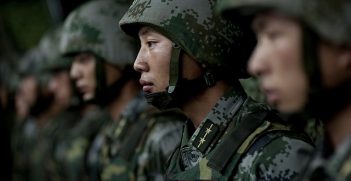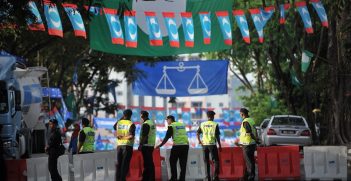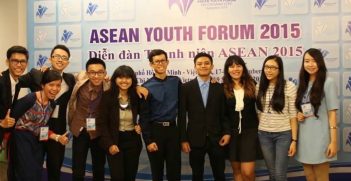Australia and Kazakhstan: a Steppe Forward for Bilateral Ties

Central Asia does not fit comfortably in Europe or the Middle East and can present a challenge for Australian policymakers. However its largest and wealthiest state presents an interesting avenue for Canberra to engage more closely with the region. Kazakhstan, the world’s largest landlocked country and home to more than seventeen million people, could well be a suitable avenue for closer engagement.
Kazakhstan has experienced a dramatic increase in GDP per capita from around US$1,600 in 1991 to over US$13,000 in 2013; the main driver of this increase has been strong international demand for its plentiful energy and mineral reserves.
While this has brought relative prosperity, it has also brought Kazakhstan to the forefront of policymaking for two major powers that will arguably shape the future of Central Asia for the next several decades: Russia and China.
Kazakhstan and Russia
Kazakhstan was a constituent republic of the Soviet Union for 70 years. Russian was promoted as the state language and traditional Kazakh lands were cleared to make way for collective farms and nuclear test sites such as Semipalatinsk. Nevertheless, economic ties between Kazakhstan and Russia have remained strong since Kazakh independence in 1991. Russian state-owned energy firms have significant investments in Kazakh oil and gas fields and their heavy involvement is a powerful incentive for Astana to take Moscow’s policy preferences seriously.
Astana does not, however, necessarily toe every line that Moscow draws. Kazakhstan is a founding member of the Eurasian Economic Union (EEU), a trade bloc with fewer restrictions on the movement of exports, imports, capital and labour between members, but it has acted independently from Russia, the de facto decision-maker in the EEU. For example, Astana has neglected to impose Russian-style trade sanctions against the West during the Ukraine crisis.
Furthermore, Russians continue to make up a sizeable minority in Kazakhstan and the Russian language continues to dominate. Senior officials in Kazakhstan were mostly educated at Soviet institutions and many of its politicians (Nazarbayev included) began their public careers under Soviet rule. Observers could be forgiven for thinking that a preference for proximity to Russia is a forgone conclusion for Kazakhstan.
Kazakhstan and China
A major Chinese state-owned oil and gas firm signed a $9 billion deal with Kazakhstan as early as 1997 to develop fields in the northwest of the country. Since taking office, Chinese President Xi Jinping has led a series of Chinese initiatives geared to develop road links, rail connectivity and energy pipelines in the region. Kazakhstan and China have several significant strategic reasons to develop closer ties.
Security is a key concern. China views its economic ties to Central Asia through the lens of the Shanghai Cooperation Organisation (SCO), a multilateral body focused on preventing separatism, terrorism and extremism. Growing trade with Kazakhstan and Central Asia more broadly could stimulate economic development in Xinjiang, arguably China’s most restive province, which in the eyes of Beijing could defuse any local sentiments for political change. The SCO assures Kazakhstan that China will discourage any unwanted Russian involvement in Central Asia, for China does not want a Ukraine-style crisis on its western border.
Another shared interest, as with Russia, is energy. Kazakhstan offers overland access to Turkmen and Uzbek gas fields, which allows China to diversify its energy supply and reduce dependency on open navigation in the South China Sea while making inroads, quite literally, for its exports to Central Asian markets. In short, Kazakhstan and China have strong economic and security incentives to increase their cooperation, regardless of the traditional Russian influence in Central Asia.
Kazakhstan and Australia
Kazakhstan is far from Australia’s traditional sphere of concern: bilateral trade and investment was worth a mere $168 million in 2014 and Central Asia is unlikely to match the strategic importance of the Indo-Pacific anytime soon. But recent developments in both countries shed some light on how Canberra can engage more effectively with Central Asia in general and Kazakhstan in particular.
Kazakhstan and Australia are both resource-driven economies with major agricultural components. This may indicate the potential for professional links at a people-to-people level. Kazakhstan is continuing to support initiatives that diversify its economy away from overreliance on oil and gas exports, including the import of Australian cattle. This is an area on which Australia could keep a close eye, in order to develop its trade with Kazakhstan and possibly other Central Asian states in light of the federal government’s “economic diplomacy” policy.
In addition, Kazakhstan’s diplomatic presence in Australia is growing. Astana has appointed two Honorary Consuls in Perth and Melbourne respectively within the last five years. Kazakhstan has also established a Consulate-General in Sydney, suggesting a gradual move to closer ties.
Finally, Kazakhstan regularly sends students abroad on state scholarships. The New Colombo Plan may be an opportunity for the Australian government to partner with institutions in Kazakhstan to provide students with academic experiences in Central Asia. Australia was recently added to a list of countries now eligible for visa-free travel in Kazakhstan, meaning Canberra is now in a position to enter into a wide-ranging dialogue with Astana on a number of important topics.
Kazakhstan is unlikely to disrupt the Australian focus on markets like the US, China or Japan but there are clear opportunities for the two countries to engage further. While Russia and China consider the merits of another “great game” in the quest for energy and influence in Central Asia, Australia could be well positioned to play a more strategic hand. Kazakhstan could be the ideal place to begin.
Luke J Dawes completed a Bachelor of Languages (2012) and a Bachelor of Arts, Hons. (2013), specialising in Asian languages and political violence in Indonesia. He is an intern with the Consulate of Kazakhstan in Melbourne and works full-time in the finance sector. This is an adapted version of his article in the latest edition of the AIIA’s Quarterly ACCESS.





